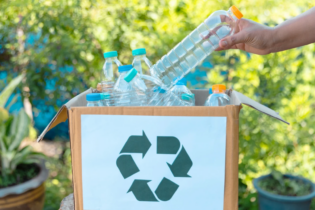When it comes to plastic alternatives, there are two materials that consumers are likely to encounter; bioplastics and biodegradable plastics.
Most people think that bioplastics and biodegradable plastics are one and the same, but in reality, they are not. These are separate products that are often confused. Both of these materials are fairly new developments that are growing in popularity around the world, as well as in South Africa. They are both marketed as alternatives to traditional plastics and are used in similar applications. “Bioplastics” refers to plastics made from plant or other biological materials – it does not speak to the biodegradability or compostability of the product. Bioplastics are made from corn, sugar cane or starch. They have the same characteristics as oil-based plastics but are made from renewable sources. Biodegradable plastics, on the other hand, are made from fossil fuels such as oil. In theory, they can be degraded by biological processes. Biodegradable plastics are not always bio-based (made from plants) and bioplastics are not always biodegradable. Why use bioplastics?The main benefit of bioplastics is that they are made from naturally-occuring and renewable materials. They reduce our reliance on fossil fuels and oils which also helps to lower carbon emissions. Bioplastics can be made from genetically modified plants or from natural feedstock – neither of which are food sources for humans.
These resources can be regrown every year, unlike oil and fossil fuels. Another advantage of bioplastics over biodegradable plastics is that they can be recycled with conventional packaging waste. Bioplastics can be processed at a recycling facility in the same way as regular plastic, whereas biodegradable plastic must be separated from the waste stream and processed separately. Bioplastics are perfectly suited to mechanical recycling. On the other hand, biodegradable plastics must be sent to an industrial composting facility where they can take up to three months to decompose. Manufacturing bioplastics is a fairly complicated process and quite an energy-intensive operation, but as the technology develops and further tests are completed, we could soon see plastic products being made from green resources. Press Release by Plastics|SA






